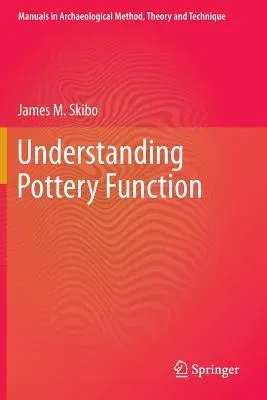James M Skibo
(Author)Understanding Pottery Function (2013)Paperback - 2013, 23 October 2013

Qty
1
Turbo
Ships in 2 - 3 days
In Stock
Free Delivery
Cash on Delivery
15 Days
Free Returns
Secure Checkout

Part of Series
Manuals in Archaeological Method, Theory and Technique
Print Length
192 pages
Language
English
Publisher
Springer
Date Published
23 Oct 2013
ISBN-10
146149611X
ISBN-13
9781461496113
Description
Product Details
Author:
Book Edition:
2013
Book Format:
Paperback
Country of Origin:
NL
Date Published:
23 October 2013
Dimensions:
23.39 x
15.6 x
1.09 cm
Genre:
Archaeological
ISBN-10:
146149611X
ISBN-13:
9781461496113
Language:
English
Location:
New York, NY
Pages:
192
Publisher:
Weight:
290.3 gm